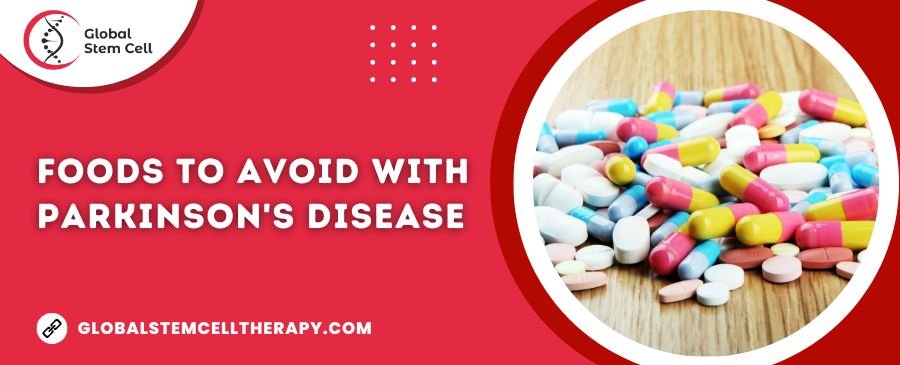A Comprehensive Guide to Foods to Avoid with Parkinson’s Disease
Table of Content
Living with Parkinson’s disease presents numerous challenges, and navigating the complexities of nutrition is no exception. A well-balanced and tailored diet can play a crucial role in managing symptoms, supporting medication effectiveness, and enhancing overall well-being.
In this comprehensive guide, we will delve into the impact of diet on Parkinson’s disease, outline the foods to avoid or limit, and provide practical tips for making informed dietary choices to support a Parkinson’s-friendly lifestyle.
The Impact of Diet on Parkinson’s Disease Symptoms and Medication
Diet can play a significant role in managing Parkinson’s disease symptoms and the effectiveness of medications. Understanding these interactions can help individuals with Parkinson’s disease make informed dietary choices that support their overall health and well-being.
Levodopa and Protein Interaction
Levodopa is a common medication prescribed for individuals with Parkinson’s disease. It works by converting into dopamine in the brain, helping to replenish the depleted levels of this essential neurotransmitter. However, certain dietary factors can interfere with the absorption and effectiveness of levodopa.
Protein-rich foods, such as meat, fish, poultry, dairy, and legumes, contain amino acids that compete with levodopa for absorption in the small intestine. Consuming high-protein foods alongside levodopa can reduce the medication’s effectiveness, leading to fluctuations in symptom control.
Foods That May Worsen Symptoms
Some foods and beverages may exacerbate Parkinson’s disease symptoms or interact with medications. Identifying and avoiding these items can help individuals with Parkinson’s disease maintain better symptom control and overall health. For example, foods high in unhealthy fats and sugars can contribute to inflammation and weight gain, which can negatively impact Parkinson’s symptoms. Additionally, caffeine-containing foods and beverages may interfere with the absorption of certain Parkinson’s medications and exacerbate symptoms such as tremors, anxiety, and sleep disturbances.
By being mindful of the impact of diet on Parkinson’s disease symptoms and medication effectiveness, individuals with Parkinson’s disease can make informed dietary choices that support their overall health and well-being.
Foods to Limit or Avoid in Parkinson’s Disease
Making dietary adjustments can help manage Parkinson’s disease symptoms and optimize medication effectiveness. Here are some foods to limit or avoid as part of a Parkinson’s-friendly diet:
High-Protein Foods
High-protein foods can interfere with levodopa absorption, a common medication for Parkinson’s disease. To minimize this interaction, balance protein intake throughout the day and separate it from medication times. Some high-protein foods to be mindful of include:
- Red meat
- Poultry
- Fish
- Dairy products
- Eggs
- Legumes
- Nuts and seeds
Refined Carbohydrates and Sugars
Excessive consumption of refined carbohydrates and sugars can contribute to weight gain, increase inflammation, and negatively impact blood sugar levels. These factors can exacerbate Parkinson’s disease symptoms and negatively affect overall health. Foods to limit or avoid include:
- White bread
- White rice
- Pasta made from refined flour
- Sugary snacks and desserts
- Sweetened beverages
Unhealthy Fats
Unhealthy fats, such as trans fats and saturated fats, can contribute to inflammation, weight gain, and heart disease risk. Limiting or avoiding foods high in these fats can benefit individuals with Parkinson’s disease. Foods to watch out for include:
- Fried foods
- Processed snacks
- Commercially baked goods
- Fatty cuts of meat
- Full-fat dairy products
Foods High in Salt
A high-sodium diet can lead to increased blood pressure and fluid retention, which can negatively impact overall health. Reducing salt intake can help manage these issues and support better health for individuals with Parkinson’s disease. Be cautious of the following high-sodium foods:
- Processed meats, such as deli meats, hot dogs, and sausages
- Canned soups and vegetables
- Packaged snacks
- Frozen meals
- Restaurant and fast-food meals
Foods and Beverages with Caffeine
Caffeine can interfere with the absorption of certain Parkinson’s medications and may exacerbate symptoms such as tremors, anxiety, and sleep disturbances. Limiting or avoiding caffeine-containing foods and beverages can help manage these symptoms. Items to be mindful of include:
- Coffee
- Tea
- Energy drinks
- Soft drinks
- Chocolate
The Importance of Balanced Nutrition for Parkinson’s Disease
While limiting or avoiding certain foods is essential for managing Parkinson’s disease, it’s equally important to maintain a balanced diet that supports overall health and helps manage symptoms.
Tips for Managing Protein Intake**
While it’s essential to be mindful of protein consumption due to its interaction with levodopa, it is still a crucial component of a balanced diet. Implement the following strategies to optimize protein intake while minimizing its impact on medication effectiveness:
Spread protein intake evenly throughout the day, consuming smaller portions at each meal.
Take levodopa 30-60 minutes before or after meals to minimize interference with protein absorption.
Consult your healthcare provider for personalized guidance on protein intake and medication timing.
Foods to Include in a Parkinson’s-friendly Diet
A Parkinson’s-friendly diet should be rich in whole, nutrient-dense foods that support overall health and help manage symptoms. Incorporate the following items into your meals:
- Whole grains, such as brown rice, quinoa, and whole wheat bread
- Fruits and vegetables, aiming for a variety of colors and types
- Healthy fats, such as those found in avocados, nuts, seeds, and olive oil
- Low-fat dairy products or dairy alternatives
- Lean protein sources, such as fish, poultry, and plant-based proteins like beans and lentils
Lifestyle Changes to Support Parkinson’s Disease Management
In addition to dietary modifications, adopting certain lifestyle changes can help support overall health and improve the management of Parkinson’s disease symptoms.
Exercise
Regular exercise is vital for individuals with Parkinson’s disease, as it can help improve strength, balance, flexibility, and coordination. Exercise also has numerous benefits, such as enhancing mood, improving sleep quality, and potentially slowing symptom progression.
Stress Management
Managing stress is essential for individuals with Parkinson’s disease, as stress can exacerbate symptoms and negatively impact overall well-being. Techniques for managing stress include relaxation techniques, engaging in enjoyable activities, building a strong support network, and seeking professional help if needed.
Complementary Therapies
Complementary therapies can be used alongside traditional medical treatments to help manage symptoms and enhance overall well-being. Some complementary therapies that may be beneficial for individuals with Parkinson’s disease include acupuncture, massage therapy, and mind-body practices such as yoga and tai chi.
Final Thoughts
Diet plays a crucial role in managing Parkinson’s disease symptoms and medication effectiveness. By avoiding or limiting certain foods, ensuring balanced nutrition, and making lifestyle changes to support overall health, individuals with Parkinson’s disease can improve their quality of life and better manage their condition. Always consult your healthcare provider for personalized guidance on dietary modifications and other aspects of Parkinson’s disease management.







